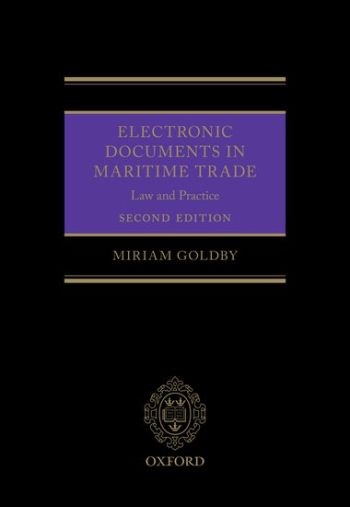
The device(s) you use to access the eBook content must be authorized with an Adobe ID before you download the product otherwise it will fail to register correctly.
For further information see https://www.wildy.com/ebook-formats
Once the order is confirmed an automated e-mail will be sent to you to allow you to download the eBook.
All eBooks are supplied firm sale and cannot be returned. If you believe there is a fault with your eBook then contact us on ebooks@wildy.com and we will help in resolving the issue. This does not affect your statutory rights.
The book provides a critical analysis of electronic alternatives to documents used in the international sale of goods carried by sea, including invoices, bills of lading, certificates of insurance, as well as other documentation required under documentary credits, and payment processing arrangements. It constitutes an in-depth discussion of their legal status and the practices relating to their use.
The new edition examines recent developments in the evolving digital transformation that is taking place in the field of international trade. The book examines the commercial pressure to move from paper to electronic data, and the new technologies and relationships built for this purpose. This transition is ever evolving and as such an understanding of the attendant legal implications of the change is crucial.
Analysis is provided on the adoption by UNCITRAL of its Model Law on Electronic Transferable Records, the author having been involved first hand in its drafting as a delegate and observer in UNCITRAL Working Group IV, and on the Uniform Rules on Bank Payment Obligations (URBPO). The book considers the practical workings and legal underpinnings of new electronic bill of lading platforms such as e-Title and Placing Platform Limited and of pilot projects such as Wave BL, Marco Polo and Voltron. It also examines the legal implications of proposed uses of new technologies such as distributed ledger technologies (DLT) (including blockchain), Internet of Things (IoT) and smart contracts.
This book provides a complete and practical analysis of e-documents in cross-border business contracts for goods carried by sea. It examines recent trends in practice and assesses the ability of electronic alternatives to achieve legal functions performed by the paper documents they replace.